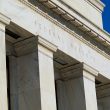Emerging Markets Cheat Sheet (August 29, 2011)
Strengths
- Overall, the Global Emerging Markets Fund performed well considering the worldwide uncertainty and negative sentiment among the global sovereign debt issues. The fund’s exposure to the information technology, telecom and energy sectors continued to produce positive gains, coupled with the fund’s weighting in Peruvian, Chinese and Polish stocks, which contributed positively to the fund.
- Chile, the world’s biggest copper producer, is poised to shrug off a global economic slowdown and generate growth of more than 5 percent next year.
- Standard & Poor’s upgraded the Czech Republic's credit rating by two notches to AA in late August, citing the government’s commitment to its fiscal consolidation program and the prudently managed and balanced economy. The upgrade came on the heels of the parliament committee’s decision to green-light a pension overhaul plan, according to RGE Monitor.
- Many Chinese companies have reported sales and earnings exceeding analysts’ expectations for the first half of the year. Particularly, banks and consumer goods and services are seeing growth in sales and resilient earnings momentum, in spite of the fact that China retains the policy of monetary tightening. Industrial and Commerce Bank of China (ICBC) reported net interest margin expansion of 4 basis points to 2.62 percent on 24 percent growth year-over-year in loans to small business, and steady demand deposits. Meanwhile, asset quality has improved and Local Government Financing Vehicle loans with cash flow coverage of less than 70 percent declined 74 percent half-over-half, bumping up the tier-1 capital adequacy rate by 16 basis points quarter-over-quarter to 9.82 percent. Belle International, a women’s shoes retailer, reported first half net earnings up 25 percent.
- The People’s Bank of China (PBOC) didn’t raise interest rates over the weekend as the market had expected, confirming that China may slow tightening when the global economy is in difficulty.
Weaknesses
- Unfortunately, the fund was negatively affected due to exposure in Thailand, India and the healthcare sector, all of which were in the bottom half of performers for the week.
- BBC News reported that Chile witnessed two days of nationwide work stoppages and street protests amid ongoing student protests to press for education reform. The unions’ demands included changes to pensions, health care and taxes, as well as constitutional reform. Violent clashes erupted after some demonstrators erected burning barricades and threw stones. Over 300 people were arrested, there was one fatality and dozens were injured.
- UBS AG, Switzerland’s largest bank, announced that 3,500 jobs, or 5.3 percent of the workforce, would be eliminated. UBS is among many of the international banks which have announced reductions in the past two months, contributing to the 60,000 job reductions this year through the first week of August.
- At $9.0 billion, the trade gap in Turkey came in narrower in July than the consensus. Trade figures showed nascent signs of improvement as export growth of 6.3 percent surpassed import growth of 1.6 percent.
- PBOC had just confirmed after market close on Friday that a new required reserve ratio (RRR) rule will be implemented in September, which will require margin deposits from acceptance, guarantee, and letter of credit to be included in the calculation of RRR. The overall impact would be Rmb 0.7 to 0.8 trillion, according to CICC. This will be another overhang for bank stock prices in the short-term.
Opportunities
- The Financial Times highlighted that there are a growing number of Brazilians with international expertise and experience who are returning to Brazil. They are helping Latin America’s largest economy deal with a shortage of managerial talent as it becomes evermore entwined in the global economy, particularly after China overtook the U.S. as its biggest trading partner in 2009. Popular sectors include banking and engineering, and the shortage of managerial talent is reflected in soaring salaries. A study by Dasein Executive Search last December found that company bosses in Sao Paulo were the world’s highest paid, with a chief executive in Brazil’s financial capital earning an average of $620,000 excluding bonuses, compared with $574,000 in New York and $550,000 in London.
- According to Bloomberg, Mexico may receive as much as $20 billion in foreign direct investment this year, 11 percent more than a prior forecast, as the second-largest Latin American economy’s low wages and proximity to the U.S. draw producers. Mexico has manufacturing costs 25 percent lower than the U.S., is producing more engineers than other countries and is signing free trade pacts with nations like Colombia, Economy Minister Bruno Ferrari said.

- China’s cement H-shares price has corrected 30 percent on average since mid-July, showing attractive valuation. Aside from broad market fears for a possible global recession, the cement price decline in July and August was to blame for the sell-off. According to CICC research, the cement price is seasonally weak in July and August, but the fourth quarter is the high season. This chart shows the supply driver for the cement price is reduced capacity in the sector, after the Chinese government ordered consolidation by closing down inefficient and environmentally harmful factories.
 Amid a decline in brownfield production in West Siberia and elsewhere in Russia, greenfield production is becoming more important. The next big hope for Russian oil is in East Siberia, with output to account for 80 percent of growth and 15 percent of total output by 2018, according to Merrill Lynch estimates.
Amid a decline in brownfield production in West Siberia and elsewhere in Russia, greenfield production is becoming more important. The next big hope for Russian oil is in East Siberia, with output to account for 80 percent of growth and 15 percent of total output by 2018, according to Merrill Lynch estimates.
Threats
- Bloomberg reported that the cost of protecting Argentinean debt against default is rising faster than in any country except Greece as President Cristina Fernandez de Kirchner’s landslide win in a primary vote bolsters her re-election bid, reducing the chance of policy changes needed to sustain growth. Since taking office in 2007, Fernandez has seized $24 billion of private pensions, called for limits on foreigners buying land and fined researchers who say inflation is 23 percent, more than double the official rate.
- There is speculation that Mexico’s central bank will hold its benchmark interest rate at a record low as Europe’s debt crisis and the prospect of a U.S. recession restrain economic growth and inflation. Signs of economic weakness in the U.S., which buys about 80 percent of Mexico’s exports, have prompted JP Morgan Chase & Co. and Financiero Banorte SAB to cut their Mexican economic growth forecasts.
- Russian news wires reported that the government agreed on the new tax regime for the oil industry, to be introduced October 1. The unintended outcome of this proposal, according to VTB Capital, is that the entire refining segment could become loss-making in a sub-$80 per barrel of crude pricing environment.
- The expectation for August inflation in China has been that it will show an inflection point before turning downward in the fourth quarter. However, the price of pork has moved up again after weakening in the first two weeks. If inflation is at the same level as July, or higher, the PBOC may have to raise interest rates, though such action is not generally expected by the market.










